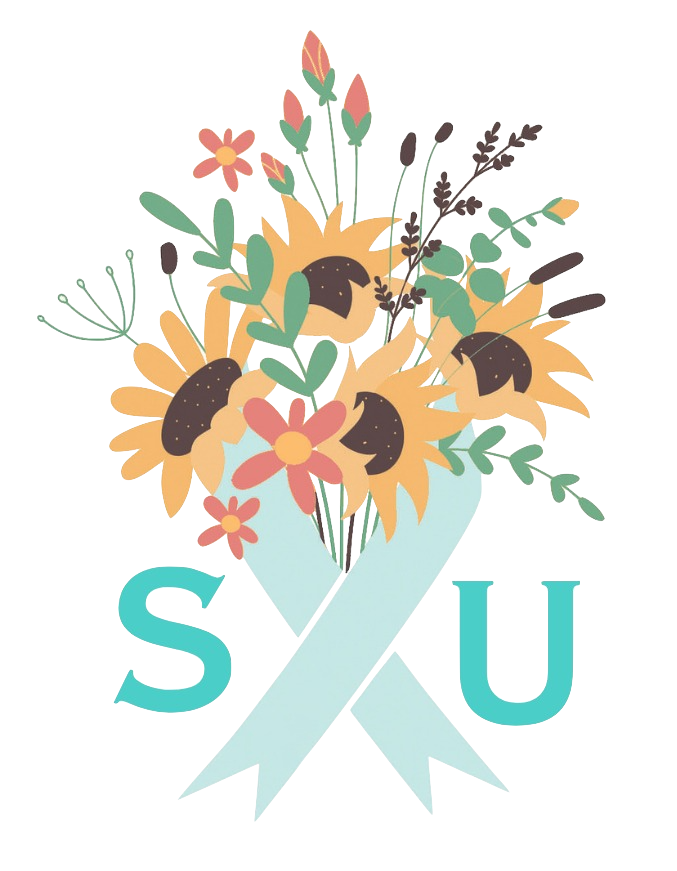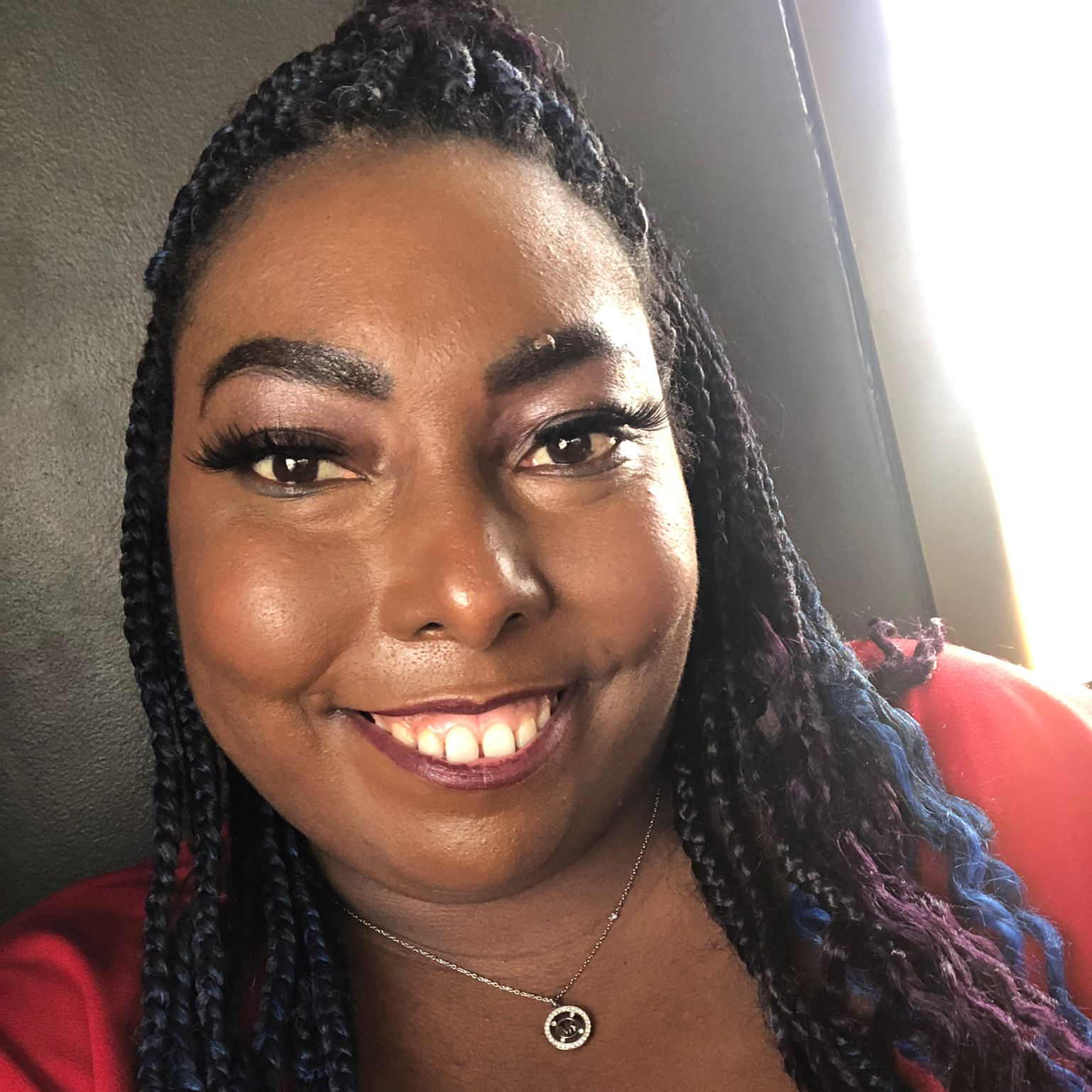Mercedes Howard
Walnut, California (United States)
MERCEDES HOWARD
Scleroderma Stories Issue 5
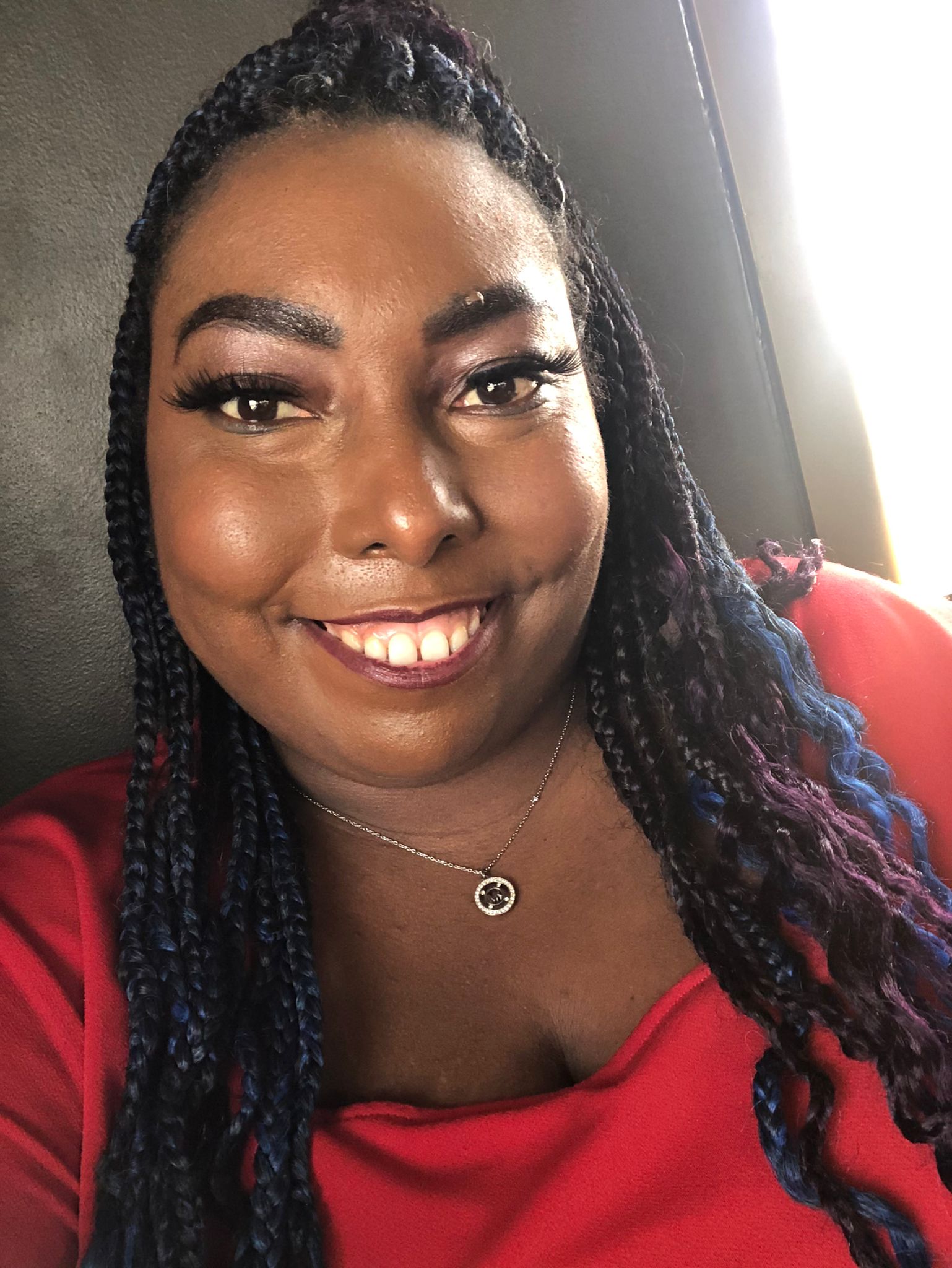
Please introduce yourself
I’m from Walnut, California, and I am currently attending UC Riverside (UCR). I am on disability and still recovering from a bone marrow transplant and stem cell transplant due to my scleroderma.
Could you please share what led to your diagnosis?
Since my early twenties, I had a consistently high white blood cell count, as well as this pain all over my body. They kept running tests, and I kept testing negative for autoimmune diseases — they just couldn’t figure it out. “Oh, you have fibromyalgia, take this! Oh, it’s your allergies, take these allergy meds.” So I wasn’t correctly diagnosed at the time.
Then when I was 30, I broke my fingertip. It got caught in the door. I got a mushroom fracture at my fingertip, and that triggered my Raynaud’s. First, just the tip of my finger turned cold and purple, then my whole finger, then two fingers, then even two fingers on my other hand.
I went to my primary doctor and let her know. She identified the Raynaud’s and referred me to a rheumatologist, who then ran a whole bunch of tests. Again, I was negative for scleroderma or any other autoimmune disease but still had a high blood cell count and high inflammation. So, he diagnosed me with undifferentiated connective tissue disease.
After that, my symptoms began to snowball. My hands started to curl, and my skin started to harden in patches. With that, my rheumatologist said that my symptoms were starting to look more like scleroderma. That’s when we started taking meds and trying to find a suitable combination for me.
Were you aware of scleroderma when you were diagnosed?
I had no idea. No one in my family has any autoimmune diseases, so it was really random. No one in my family has the same symptoms – or any symptoms at all. Most of my family is healthy.
It was hard to find out that I have something like scleroderma. They still don’t know if this disease is genetic or just how it occurs. I don’t know what I thought it was, I just thought it was a weird thing that was happening, and that I could take some medicine and get rid of it or have a surgery done to fix it. In reality, it really is not that simple.
When they first tested me, I was showing signs of autoimmune disease but it was unclear which one, hence the diagnosis of undifferentiated connective tissue disease, which I had for about a year. Only when my symptoms started progressing were they able to narrow it down to scleroderma. To this day, I’m testing negative for scleroderma despite having all the symptoms.
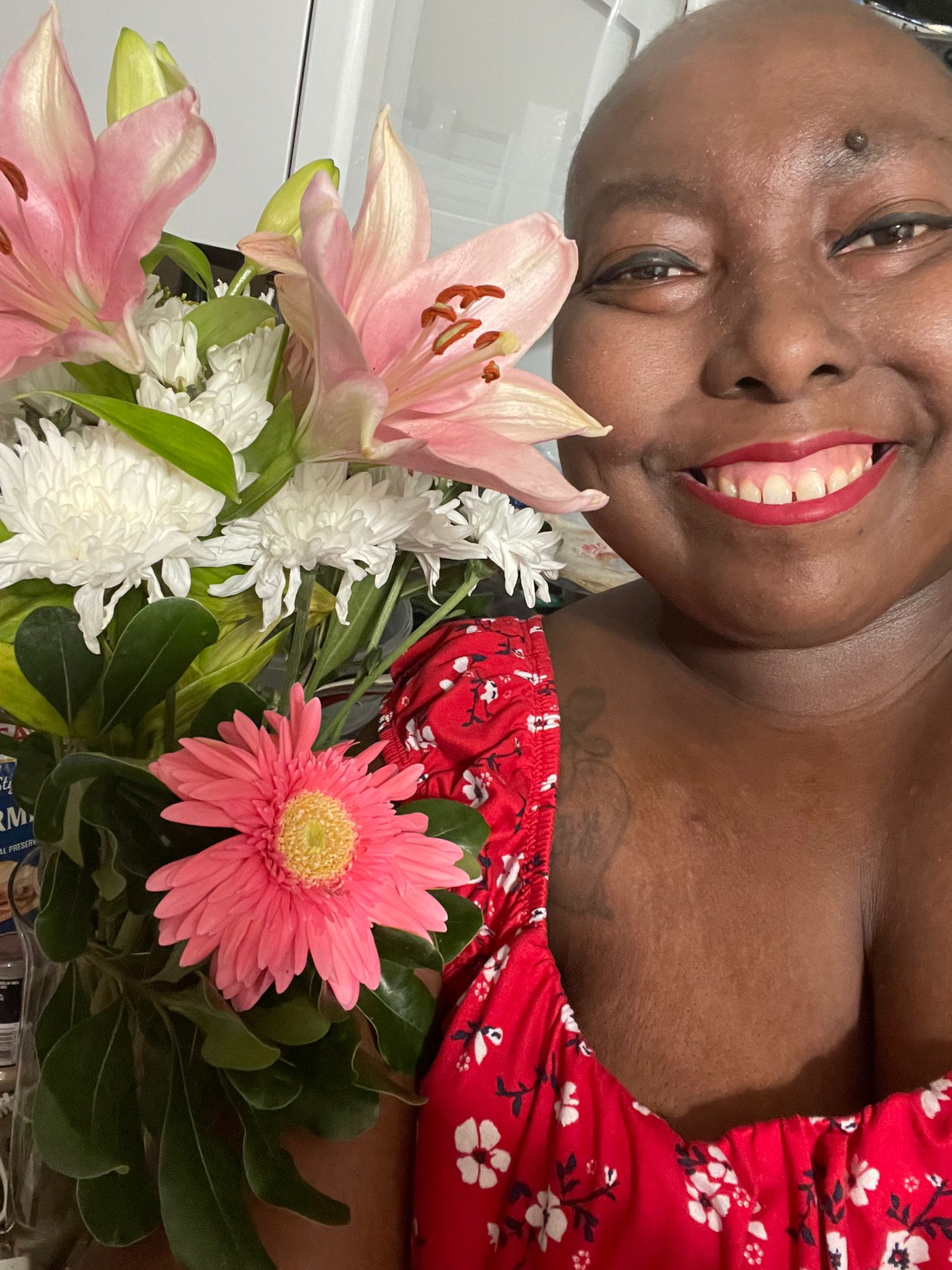
What medications or treatments have you tried?
My rheumatologist had me on methotrexate and plaquenil, but none of them really worked, and my condition was still progressing. We tried switching up the meds. Most of them still weren’t working.
Then, we tried Rituxan, which is an IV infusion for rheumatoid arthritis, and my inflammation dropped to normal levels. However, it only worked for about two months before the inflammation shot back up again, and we were forced to consider other options.
Interestingly enough, I had met the comedian Bob Saget, who was a champion for scleroderma patients due to his work with the Scleroderma Research Foundation. I had the opportunity to tell him what I was going through and thank him for the work that he did over the years.
He told me about a new drug coming out that has already been tested, which could be really helpful for scleroderma patients. It was called Actemra. In the following month after its release, that’s what they put me on (in combination with CellCept), and I was taken off the methotrexate.
CellCept gave me the ability to open my hands again, in conjunction with me practicing dexterity by knitting. I still get pain, and I can’t leave my hands in the same position for long periods of time, but I have dexterity now. Along with that, the Actemra kept my inflammation low, which was great because it was so hard to move with the inflammation.
Could you please tell us more about your educational and work journey?
I was working at Walmart after I was diagnosed, and Walmart has cement floors, so it was hard for me to work. I was using a cane. I went to the Department of Rehabilitation and I let them know of my diagnosis, that I was struggling with work, and that I needed something else to do. My doctor told me that I couldn’t work at Walmart; with all that walking and the cement floors, it’s too much work.
With the Department of Rehabilitation, I did a week’s worth of tests to find a better career that I could fit into. They had me go to Cal State San Bernardino to test if I could work in an office. I couldn’t even stay awake for the classes, and I had issues filing, so I was told it was better that I go back to school instead. My counselor told me to go for a Master’s, and that they’d pay for it.
Right now, I’m working on my Bachelor’s and soon I will be going for my Master’s in Sociology
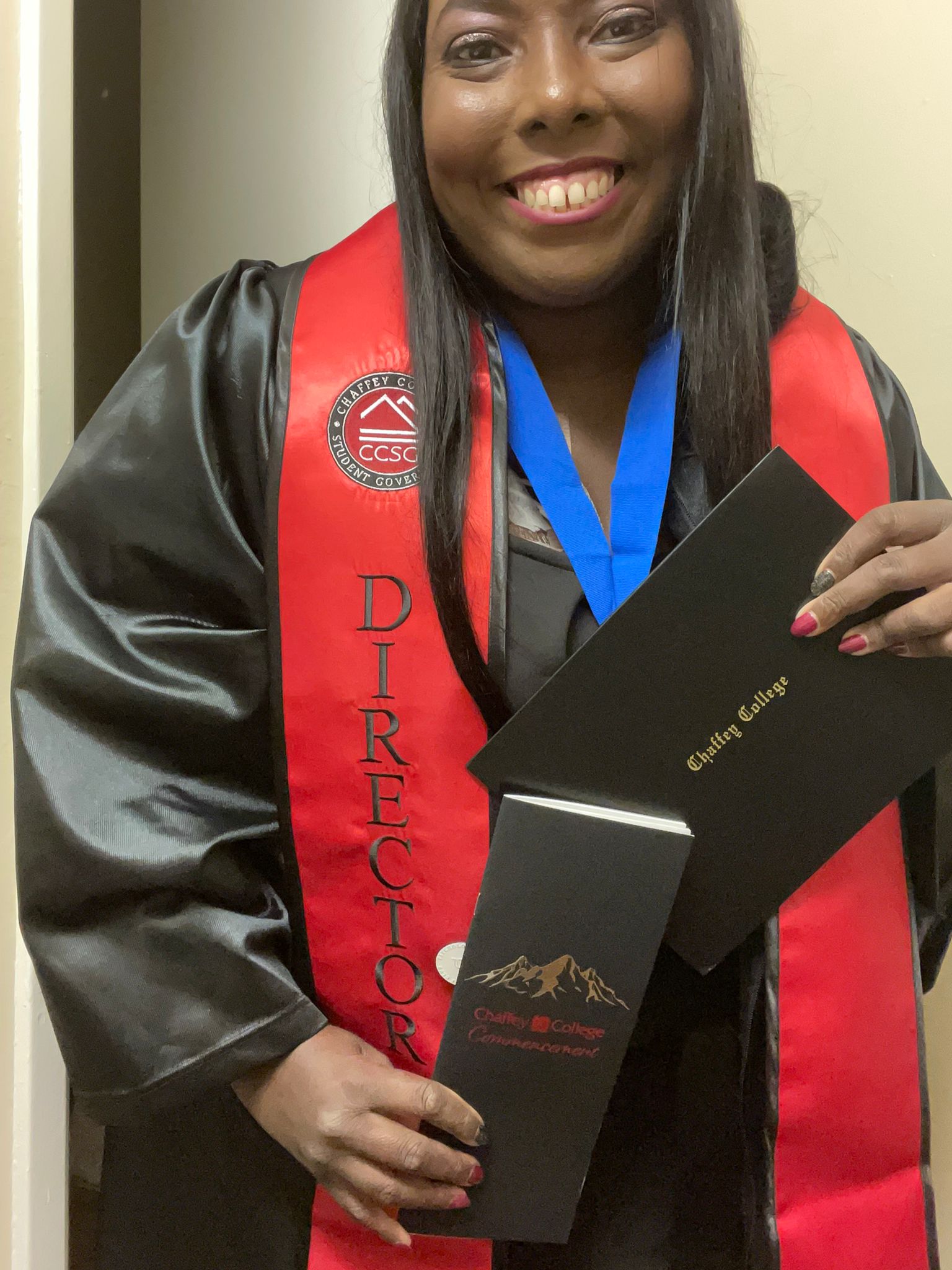
How have your symptoms changed since your diagnosis and transplant?
While trying to find the correct medications and the right combination of them, there was still damage being done. Even now, after the transplant, there’s still things coming up. I think that’s the hardest part — taking the meds and thinking, “Okay, I’m doing well,” and that the meds are helping. However, in reality, they’re only helping with some of the symptoms, not all of them.
For example, even though the CellCept helped my hands and my skin, it didn’t help my GI system, which still doesn’t work properly. The first thing to go was my esophagus. In fact, two weeks ago, I found out my stomach is paralyzed. I’ve had many tests where they say I’m fine, but it’s just one of those things where you hope that the medicine is working.
I’m hoping that this transplant will stop things from getting worse, but I’m really not sure. I still take Actemra once a week using my self-injection at home, since my inflammation returned following the transplant. It’s hard to say if I’m okay because there’s just one thing happening after the other. I still don’t know when my stomach became paralyzed and whether it was before or after the transplant. It just feels like a rollercoaster.
What challenges have you faced recently?
Actually, the past four weeks have been quite rough on me. Three weeks ago, I found out that, possibly because of being subjected to a lot of radiation, I may not be able to have children. On top of that, two weeks ago, I found out about my gastroparesis — my paralyzed stomach, which relates to one of my biggest challenges that I am currently facing, which is my diet. Owing to my gastroparesis, I can’t eat a lot of the foods that I used to eat. I have to instead find and prepare the foods that are safe for my stomach and safe for me to digest.
I’m a foodie, so it’s hard to think that there are some things that I just can’t eat anymore. At the same time, I have a hard time standing for a long period of time to cook, and repetitive motions with my hands are also a challenge. It’s hard for me to cut vegetables, for example, and prepare a meal. I’ve instead been having to teach my fiance how to cook so that he can cook for me, because I can’t do it that well.
I now have diabetes from my gastroparesis, because my food is staying in my stomach for so long, causing my blood sugar to stay high. I’m having to take insulin. I actually have a doctor’s appointment tomorrow, where I will ask for an insulin pump and a Dexcom to track my blood sugar because now, with this diagnosis, there’s no telling how long I’m going to have it, but it’s probably going to be permanent. It’s yet another major change in my life that I wasn’t expecting. I really didn’t take the news well.
In these past few weeks, I have also had to get my esophagus dilated. My esophagus doesn’t work well, and I can’t move it, so sometimes it starts to constrict. The doctors have to stretch it for me so that I can eat better. Otherwise, even my pills will get stuck in my throat. I can feel it happening, so I’ll know when to go in and get my esophagus dilated again. It’s something that I have to get done every once in a while.
Another thing I’ve been having to deal with after my bone marrow transplant is getting all my immunizations done over again. Chicken pox, rubella, measles, MMR — all the stuff you get when you’re a kid. I’ve been having to do them again, since they completely wiped my system clean with the transplant. That has been another one of my latest missions — and goodness, those shots hurt! I don’t know how we did it as kids.
Now, it’s just the medical information that’s throwing me for a loop and affecting my daily life, but I’m trying to do more things to not think about it and to take advantage of being here.
Could you please tell us about your life as a student?
In my daily life, I still continue as a student at UCR. What I didn’t realize when moving to Riverside is actually how cold it gets over here, which has been a struggle for my joints. I don’t do well in the cold, and I get pain, which is in contrast to when it’s hot, because then I get to the point of passing out. That happens even for something as simple as taking a hot shower… and nobody likes a cold shower. Surprisingly though, I’m still thriving at school. Of course, there are hiccups along the way, but that’s normal — I’m a student.
Overall, I have a lot of support in school. I can’t take notes because it’s hard for me to hold a pen and write for a long period of time, so I was allowed to use an application called Otter to record my lectures. I use my cane at school, and they have a tram service to take me to my classes if I need it. I also have a handicap pass, which allows me to park closer to campus.
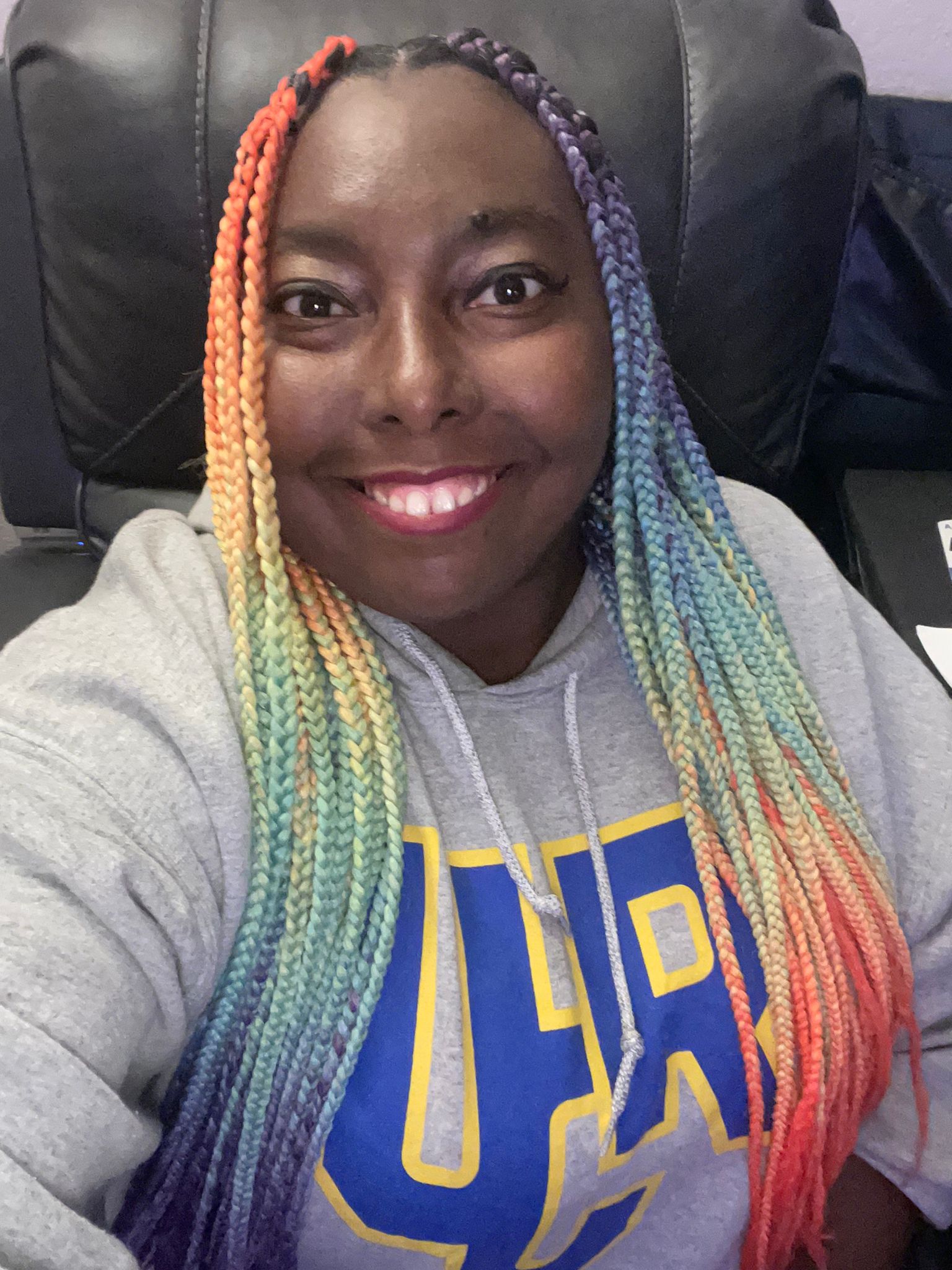
Could you tell us more about knitting and your other hobbies?
I’m actually a mentor to a nine-year-old as a part of a Big Brother Big Sister program as well, so I have a nine-year-old little sister who I hang out with. She’s aspiring to be in the WNBA. We talk a lot about what her college is going to be like, what her high school is going to be like, what road she’s gonna take, and stuff like that.
Before I was diagnosed, I learned to knit, and now I actually knit a lot. I knit scarves and blankets. In fact, I knitted two blankets and a scarf that are actually on display now, because I submitted them to a competition at the LA County Fair. I won third place on both blankets, which I’ve never done before.
That’s the new thing that I’m trying to do — to submit stuff and get involved in competitions. Even if I don’t win, I’m just happy that people can see what I did, and they can see my name on it. If we hadn’t found the right medicine cocktail, my hands wouldn’t have been able to knit. That’s one of the main reasons why I tried it as much as I can, because I might not be able to later.
I also plan to teach knitting as well. My eight-year-old and nine-year-old nieces also want to learn to knit, so I’m planning on teaching them to do it. At my school, some people saw me knitting and I was talking about how knitting is a good stress reliever, so there’s some people at school who I’m going to teach how to knit. I’m working with the Big Brother Big Sister program to possibly set up a workshop where we bring other people in, and I teach them how to knit.
I’m working on blankets for friends, and I’m doing a lot of family outings (we’re planning to go to the LA County Fair together later this month). In general, I’m spending a lot of time with my friends and family. I’m always at my sister’s house, I talk to my family a lot, and I text them a lot. With my friends, even those since seventh grade, we talk every day. Actually, one of their daughter’s is graduating from our high school, so I just visited my high school recently. I’m trying to do as much as possible with my friends, my family, and even with my fiance’s family. We always have a lot of gatherings, and we try our best to make it to them.
I just think about the fact that there’s a possibility that I wouldn’t have been able to do it, and that I might not have been here. It pushes me to keep doing new things and keep doing my best to pay it forward.
Has your family been a strong support system for you through your journey?
Yes. My mom has been the most supportive. She stayed with me in the hospital when I was at City of Hope for about a month. If I have a medical procedure or anything like that, then she’ll drive me or I’ll stay at her house, since I’m not supposed to drive after. She tries to come with me to my appointments, even if it is just to meet me there.
One of my sisters is also always researching. She’s always looking at articles and stuff like that, trying to see if there are any other medications or anything else that could work for scleroderma, or things that I can ask my doctor about. My other sister is also supportive. She’s a nurse, and she always tries to calm my fears and anxieties.
For the most part, the only thing is that it’s hard for me to explain to them and my fiance how it feels. I can tell them what’s going on. I can tell them the symptoms, but because they’re not experiencing it and since I don’t show any physical symptoms for them to see, there’s nothing solid for them to grasp at. A lot of the time, they might not understand why I can’t do certain things.
That’s the only thing that I’m still struggling with in terms of my support system. They try a lot to understand the situation that I’m in, but at the end of the day, it’s still hard for them to fully grasp it. I feel like a lot of the time when I can’t do something, they take it as me being unwilling rather than being physically unable.
How has your outlook on life evolved following your diagnosis?
I think the biggest change was having to realize that I have to go back to school and basically start from scratch. To be honest, I was both a little scared and little excited.
When I was first diagnosed, it was just doom. I was not happy, and in my head, it was life-ending because of all the symptoms and all the portions of my life that it was going to take over, particularly the physical aspect of my life. I thought, “Well, what if they don’t find the medicine? How long is it going to be til I’m gone?” That’s all it was at that point when I was first diagnosed, before the medicine was working. It was just all negative.
Now, with the meds that are starting to work, I was able to be positive again. I looked forward to the fact that I was going to school, and that I wouldn’t be in debt when I graduated. I’d be able to help people. While talking to my disability coordinator at UCR, he suggested that I take that job and that I work that way in that position because I understand how difficult it is to accept your disabilities and have to ask for help.
I’m trying my best to help others with scleroderma, or just others in general. I’m doing all this because I want to help and have the capacity to do so. Before the condition, I would help people, but I wouldn’t think to go to school and do it for a living. I wasn’t in that head space. I couldn’t even do customer service at Walmart.
With this condition and after seeing the reality of mortality, it forced me to look at the world in a different way. Now, I’m just trying to pay it forward and help more people by letting them know that diagnoses or disabilities can be tough, but we still have the capacity to rise above it.
Recently, I actually did work with the PR team at UCR for the Disability Department, and we took some photos for ads. One of the people working the event even had scleroderma. You could see her hands were curled. I said, “See, this is what I’m talking about. You didn’t let it stop you.” This is what I mean. We can still achieve things regardless of this condition. Granted, it imposes us a lot more limitations, but they are limitations that we can learn to work with and move forward with.
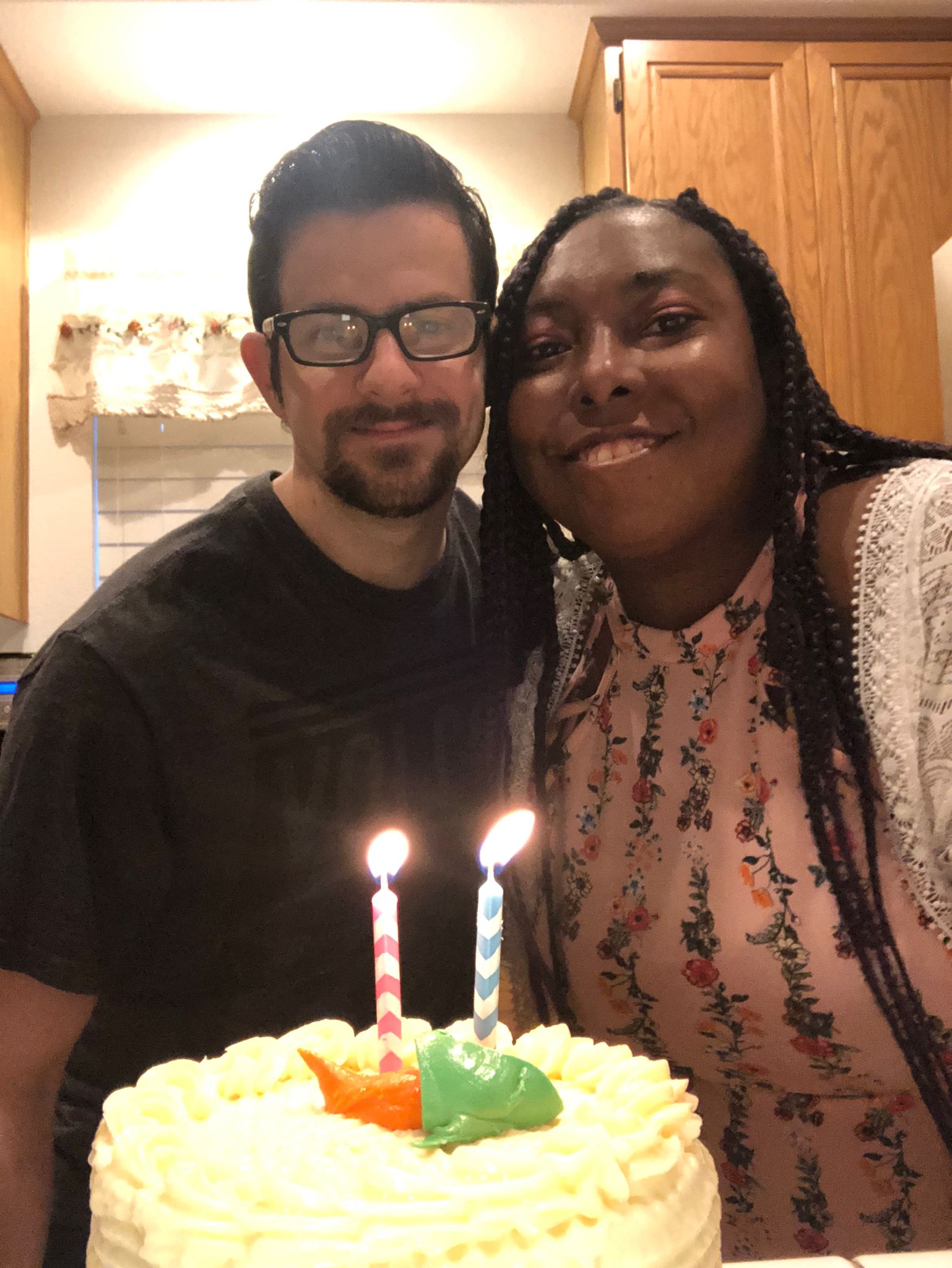
Can you talk about your journey of empowering others through “Under the Hood”?
I started a Facebook page titled “Under the Hood” because my name is Mercedes. I feel that my diagnosis put me on a path that I wouldn’t have taken otherwise. I wouldn’t necessarily want to thank scleroderma, but it gave me an opening to be a better self, and I wanted to be able to share that path with others.
There was another blogger who shared her struggles and everything she was going through, and I realized how much it helps to see that even though what we’re going through is really tough, we’re still trying to make the best of it. It inspired me to share the good, the bad, and the ugly of the condition and of my journey. I wanted to let people know that we still have bad days, but for the most part, we have another day to do something great. I wanted to help motivate those with scleroderma to not let it be their death sentence, which is what I was feeling in the beginning.
Have you been able to connect with other patients?
Yes, there’s some on my personal Facebook page. I’m also on the scleroderma stem cell transplant Facebook page, and I let them know how I’m doing after my transplant. I’ve gone to an event with the scleroderma community before the pandemic as well as virtual support groups for scleroderma. Two of the people I’ve come in contact with have written a book about their journey and encouraged me to write one about mine. I’ve thought about it. I haven’t done it yet, but I would love to.
It helps to talk to others that are dealing with it because they understand it. The thing with scleroderma is that everybody gets it different. Not everyone uses the same medications, so in the scleroderma community, we just discuss what has worked for us. Some people don’t know if a medication will work, or they might not know that it’s an option.
For example, recently in Canada, they approved Viagra for treatment of Raynaud’s because it opens the blood vessels. We already have that out here in the US, so we were able to share that with others and share our experiences or side effects with it. That’s what I like about the community. Even with the Southern California Scleroderma Foundation, Tina called me when I was in the hospital to check up on me.
Building this network of people and supporters is one of the biggest things that we can do to get through this. Without it, it would be rough. On the other hand, there’s also the aspect of finding out when someone in our community passes away. That’s some hard stuff. We’re able to help and support the families as they grieve if they are open to it.
I try to stay connected to the community because we need to support each other. Everyone has it different. There’s no cure, and we’re always going to be having issues. Sharing our experiences and staying connected with each other helps both our awareness of our options and our emotional support.
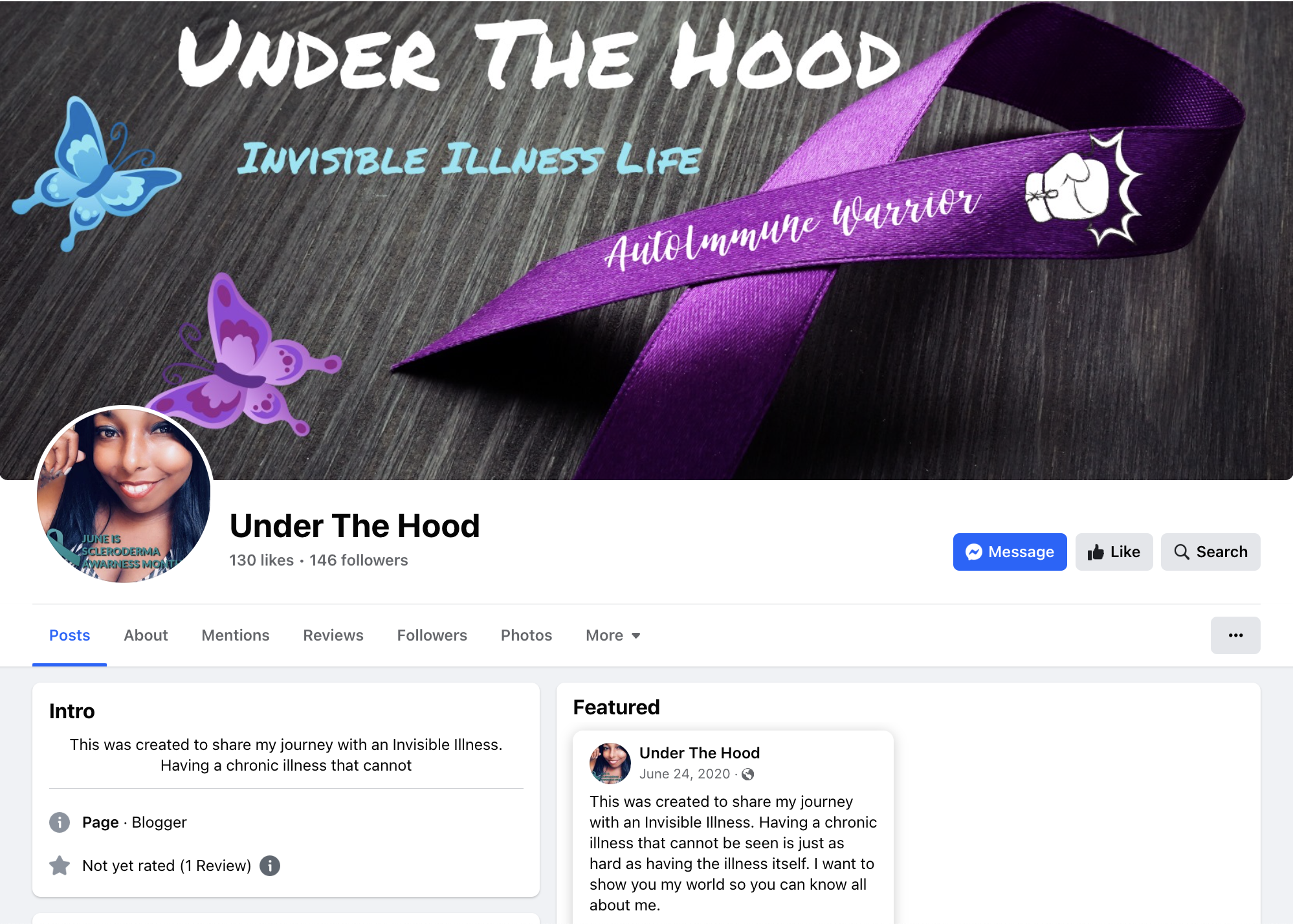
What advice do you have for people with scleroderma or other chronic illnesses?
I would say “don’t let it stop you.” Like Bob Saget said, have hope. He was always so positive, and I was devastated when he passed away. Before that, he gave me a hug and said, “We’re not going to stop until we find a cure.” I saw him again a month before he died, and he said, “This is why we do it. For people like you.” It’s things like that that help me.
Find a support group, share things with them, and ask them questions. If your doctors give you a hard time, for example, they might give you a doctor they recommend in your city. Don’t be afraid to get second opinions. I did. I got a second opinion on my doctor, and I’m still with him today.
Dr. Furst is the ultimate scleroderma doctor. He wrote a book on it and has a doctor’s office in LA. I actually went to see him as a third opinion on my doctor, but he’s also very attentive and will work with you if you can’t afford it. He’s also always researching at UCLA at their scleroderma center. If you live in California and want a second opinion, I’d say reach out to him.
There are many resources online that you can access as well, but mostly I’d say to see if there are resources in your state. If you can’t find a job, check with your state and see if they have something like what I did with the Department of Rehabilitation, and find that new path or new career. If you apply for disability because you can’t work and they deny you, don’t stop. Keep applying and appealing. It took me three tries to get it. Don’t give up and keep fighting for yourself.
Keep living. It’s hard to do it, but the fact that you are here means that you can.
What advice do you have for those with scleroderma or other chronic illnesses?
My last piece of advice would be to never give up and to always fight. We are given an opportunity daily to do the right thing, be the strongest we can be, and make someone smile. Happiness begins with acceptance, courage, fight, and love.
Be sure to follow us on Instagram and Facebook (@sclerounited) to see more scleroderma warriors’ journeys in our weekly Sclero Sunday series.
Are you a scleroderma warrior? We’d love to interview you for Scleroderma Stories! Please visit tinyurl.com/share-my-sclero-story or email us at contact@sclerounited.us
